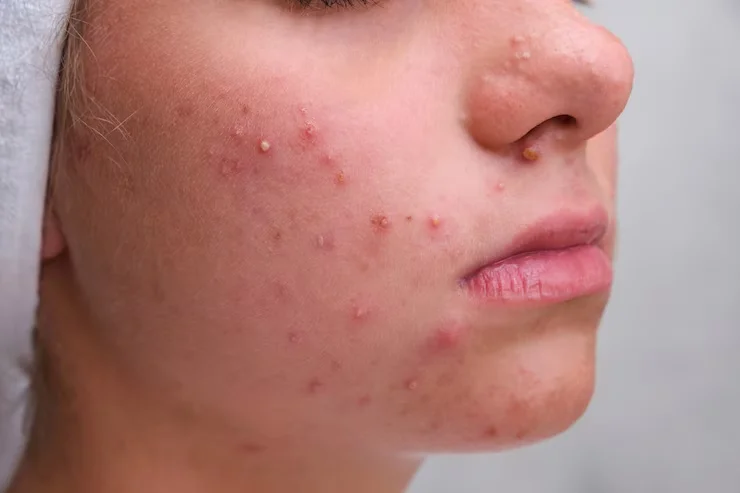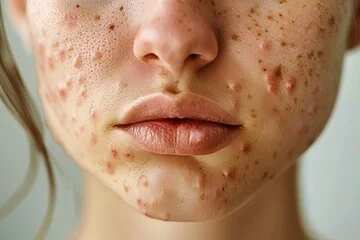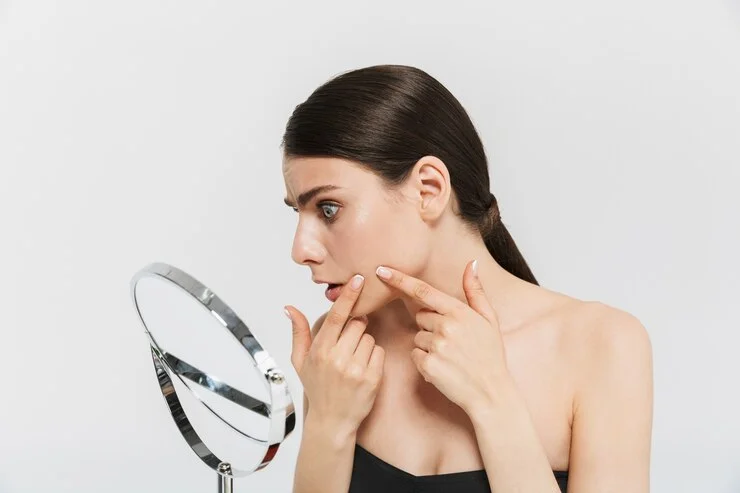-
Ganesh Talkies, Kolkata
Ganesh Talkies, Kolkata

Discover how the best gynecologist in Kolkata can help you manage hormonal acne with effective treatments, lifestyle tips, and a deeper understanding of underlying causes.

Hormonal acne is more than just a skin concern; it’s often a sign of underlying hormonal imbalances that may require more than surface-level treatment. For those struggling with persistent acne linked to hormonal fluctuations, working with a skilled gynecologist can make a world of difference. A gynecologist can identify hormonal issues, guide you through treatment options, and offer lifestyle suggestions that improve your skin and overall well-being.
In this post, we’ll explore how partnering with the best gynecologist in Kolkata can provide a comprehensive approach to managing and treating hormonal acne.
Hormonal acne usually appears in areas where our skin has more oil-producing glands, like the face, chest, and back. It commonly affects teens and young adults but can persist into later adulthood. Hormonal acne is typically triggered by fluctuations in hormones such as androgens (like testosterone), which stimulate oil production in the skin.
Key factors that may trigger hormonal acne include:

Finding the best gynecologist in Kolkata can be crucial for understanding and managing hormonal acne. Unlike dermatologists, who primarily focus on skin, gynecologists specialize in understanding the hormonal factors behind conditions like acne. They can help develop a personalized treatment plan that targets the root causes rather than just the symptoms.
One of the first steps a gynecologist might recommend is hormonal testing to get a clear picture of any underlying imbalances. Hormonal tests are typically done through blood work and might include:
Once the underlying hormonal imbalances are identified, the best gynecologist in Kolkata can recommend targeted treatment options. These may include:
It’s essential to work closely with a gynecologist to determine which treatment is most suitable for your body and lifestyle, as these treatments can have side effects that need to be monitored.
Medical treatments are highly effective, but lifestyle changes can further enhance results. The best gynecologist in Kolkata can guide you with holistic advice, combining medical treatments with practical lifestyle adjustments.
Certain foods can affect hormone levels and exacerbate acne. A balanced, nutrient-rich diet may help in managing hormonal acne:
Stress is a major factor in hormonal acne. Elevated cortisol can disrupt hormonal balance, so managing stress is essential. Consider these tips:
While skincare alone may not cure hormonal acne, a proper skincare routine can help reduce inflammation and prevent clogged pores:

Gynecologists can identify and treat the hormonal imbalances that contribute to acne. They often use blood tests to diagnose underlying conditions, such as PCOS or hormonal fluctuations, that can cause acne.
While medication can help regulate hormones, lifestyle changes such as a balanced diet, regular exercise, and stress management can also support hormone balance and reduce acne severity.
Results vary based on the treatment type and individual response. Oral contraceptives and anti-androgens may take several weeks to show results, while lifestyle changes may provide gradual improvement over a few months.
Yes, certain foods, particularly those with high glycemic indices, can spike insulin and impact hormonal levels, potentially worsening acne. A low-sugar, balanced diet can help manage these effects.
A gynecologist is ideal for identifying and treating hormonal imbalances that cause acne, while a dermatologist can provide skin-focused treatments. Often, working with both specialists yields the best results.
Treating hormonal acne requires a comprehensive approach that combines medical support, lifestyle adjustments, and personalized skincare. Consulting with the best gynecologist in Kolkata offers an invaluable advantage by targeting the hormonal root of acne. This approach helps in not only managing acne symptoms but also fostering better long-term health.
Whether through tailored treatments or holistic lifestyle guidance, finding a trusted gynecologist can empower you to manage hormonal acne effectively and build a clearer path to wellness. With the right guidance, you can achieve skin that reflects your inner balance and vitality.